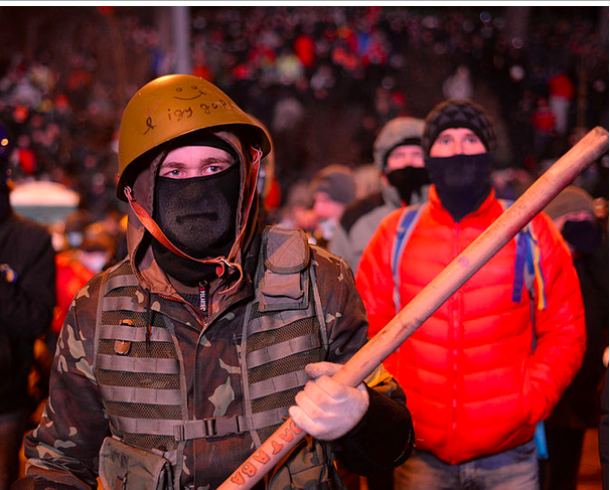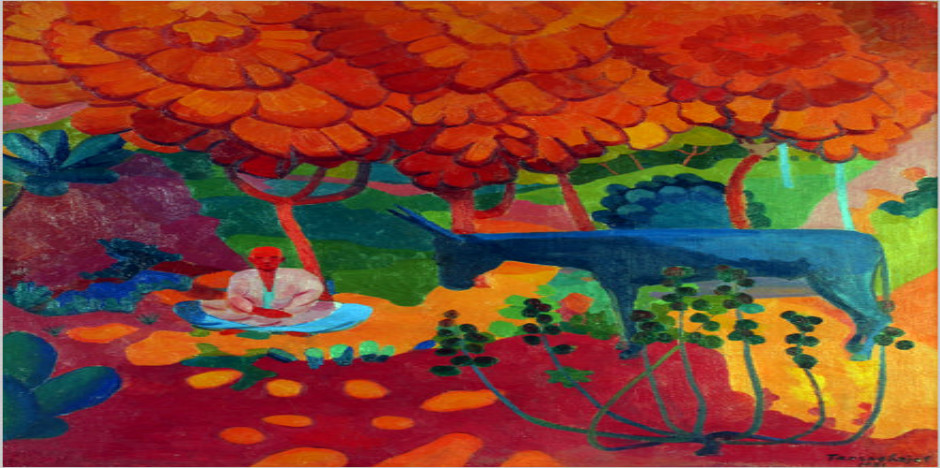It will take the international community years to recover from the trust Russia violated over its illegal interference in Ukraine. But Putin and his close collaborators will never be punished.
As a prominent Polish commentator puts it: “This is a bizarre war. Day after day the invasion crawls foreword like a snake on hot sand. Even if there are no shots, explosions or blood, we will not escape the costs of the conflict in the future.”
The bizarre dynamics of the conflict in Ukraine blurs its possible impact on our future. Not because it may cause a war between NATO and Russia, which is unlikely. No, what makes this conflict bizarre is the focus on not triggering a war.
Russian President Vladimir Putin moves through eastern Ukraine like a moose in the bog: slowly and carefully. The West tries to make the animal turn back, but without startling it because it could drown trying to escape.
Putin’s success or failure in Crimea could bring consequences worse that the overall conflict between Ukraine and Russia. Western diplomats are therefore trying to ensure a scenario in which Russia neither wins nor loses. This goal guides Former Secretary of State Henry Kissinger in his theory that Ukraine should follow the example of Finland and seek balance between the West and East. But achieving this goal requires a certain diplomatic finesse in this geopolitical game — which is difficult when one of the game’s players prefers to use a hammer and a sickle.
Regardless of what happens next in Ukraine, the world order will be licking the wounds inflicted by Putin for a long time.
The world’s Lex Luthor
According to international law, Putin is already a war criminal. As Russian president, he committed the crime of aggression described in Resolution 3314, which the UN adopted in 1974. In it, aggression is defined not just by military invasion, but also by blocking maritime ports, sending irregular troops or mercenaries to run military operations against another country, and using armed forces in another country contrary to any agreement regulating their presence there.
Public servants entangled in decision-making processes or the execution of orders are also guilty of crimes against peace. That includes Russian Prime Minister Dmitry Medvedev, Russian Foreign Affairs Minister Sergei Lavrov, high-ranking military officers, ambassadors, and even civilians such as businessmen and opinion leaders, if they have supported Putin’s interference in Ukraine.
In another words, the war criminals are the very Russians with whom the West must negotiate with to quell this conflict. But for the sake of a bigger and more important cause, their sins must remain an open secret. Negotiations with criminals are always a moral hazard.
For hundreds of years the world has been making small steps towards more civilized relations between countries. It has been replacing military conflict with legal ones, and conditioning the use of force on approval from the international community. If Putin was and is genuinely concerned about the Russian minority in Ukraine, he could have chosen from legal ways to claim their rights. But he didn’t even try.
Lavrov is right when he says that the West has intervened many times, bending the law. But each time, it did so with some legal permission, while Russia have never bothered with international rules or appearances. Impeding the work of observers for the Organization for Security and Cooperation In Europe (OSCE), Moscow has spoiled the achievements, spanning 50 years, in regulating international politics. Who knows how many years it will take for international trust to be regained. It will cost us all, including Russians, a fortune, because military spending will undoubtedly rise.
The only people who will not pay for Crimea are the criminals responsible for the conflict. Neither Putin nor any of his close collaborators will be judged by the International Criminal Court at The Hague for their crimes against peace. Which is why we must ask ourselves, what is the point of adopting toothless laws and paying the high prize for the illusions they create?

